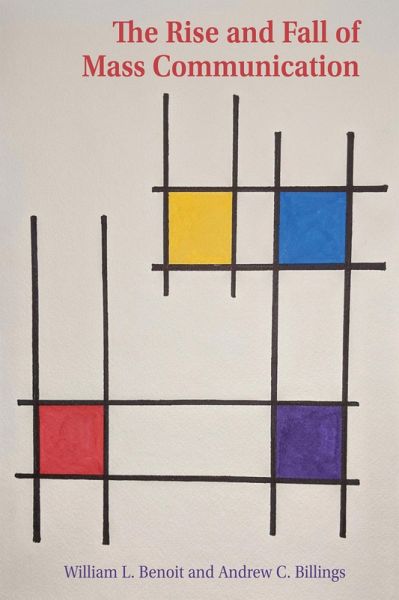
The Rise and Fall of Mass Communication (eBook, PDF)
Versandkostenfrei!
Sofort per Download lieferbar
Statt: 40,25 €**
31,95 €
inkl. MwSt.
**Preis der gedruckten Ausgabe (Broschiertes Buch)
Alle Infos zum eBook verschenkenWeitere Ausgaben:

PAYBACK Punkte
16 °P sammeln!
Mass communication theories were largely built when we had mass media audiences. The number of television, print, film or other forms of media audiences were largely finite, concentrating people on many of the same core content offerings, whether that be the nightly news or a popular television show. What happens when those audiences splinter? The Rise and Fall of Mass Communication surveys the aftermath of exactly that, noting that very few modern media products have audiences above 1-2% of the population at any one time. Advancing a new media balkanization theory, Benoit and Billings neither...
Mass communication theories were largely built when we had mass media audiences. The number of television, print, film or other forms of media audiences were largely finite, concentrating people on many of the same core content offerings, whether that be the nightly news or a popular television show. What happens when those audiences splinter? The Rise and Fall of Mass Communication surveys the aftermath of exactly that, noting that very few modern media products have audiences above 1-2% of the population at any one time. Advancing a new media balkanization theory, Benoit and Billings neither lament nor embrace the new media landscape, opting instead to pinpoint how we must consider mass communication theories and applications in an era of ubiquitous choice.
Dieser Download kann aus rechtlichen Gründen nur mit Rechnungsadresse in A, D ausgeliefert werden.













